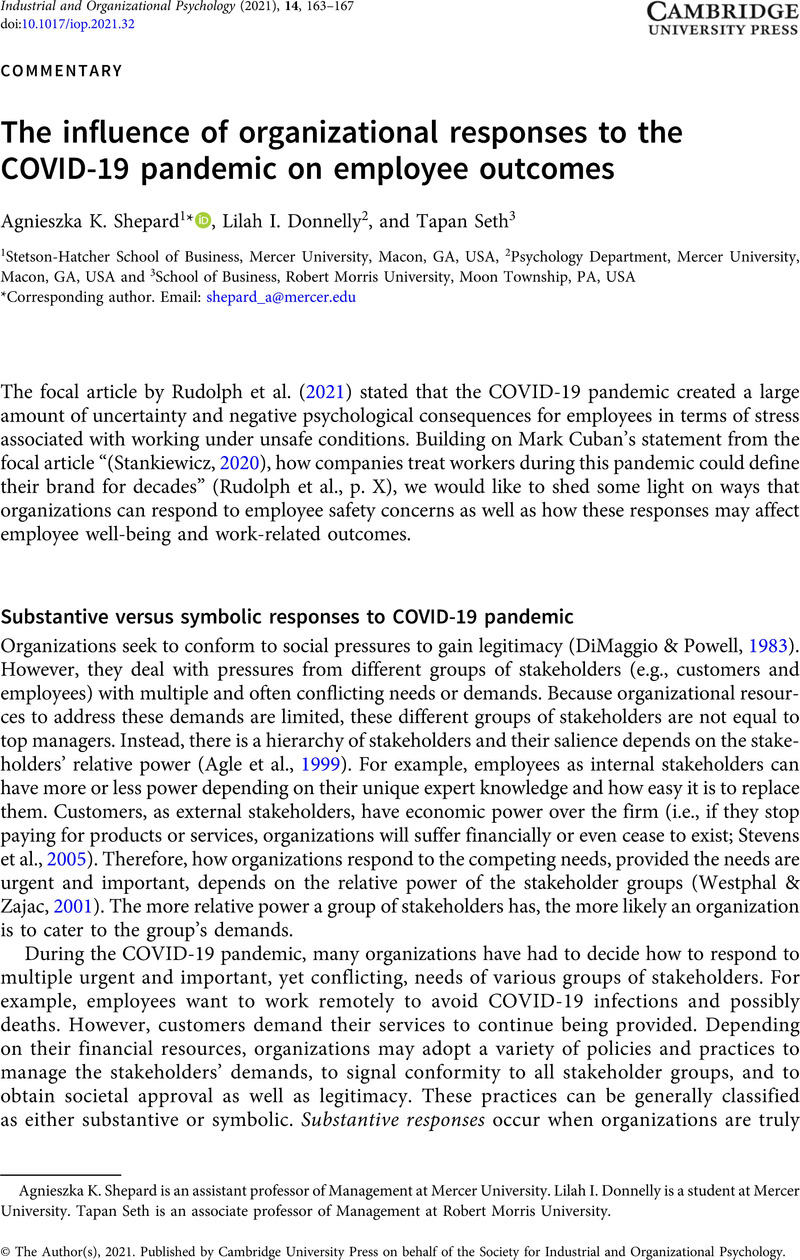Crossref Citations
This article has been cited by the following publications. This list is generated based on data provided by Crossref.
Windon, Suzanna R.
Robotham, Daniel
and
Echols, Ann
2022.
What Explained Nonprofit Organizations’ Satisfaction with Volunteer Retention During the COVID-19 Pandemic?.
Journal of Human Sciences and Extension,
Asante, Daniel
Tang, Chunyong
Kwamega, Michael
and
Asante, Eric Adom
2022.
In pursuit of service encounter quality: Will service-oriented high-performance work systems benefit high-contact service industries?.
Journal of Retailing and Consumer Services,
Vol. 68,
Issue. ,
p.
103037.
Castro Samayoa, Andrés
Nguyen, Bach Mai Dolly
Lally, Marisa
and
Pemberton, Brittney
2023.
Intertwined Crises: California’s Public Universities’ Responses to COVID-19 and Anti-Asian Animus, January 2020 to June 2021.
American Behavioral Scientist,
Vol. 67,
Issue. 12,
p.
1510.
Penpek, Stephanie M.
Black, Kristen Jennings
and
Beck, Emma
2024.
Experiences of Workers with Chronic Health Conditions During the COVID-19 Pandemic: An Examination of Demands and Resources.
Occupational Health Science,
Vol. 8,
Issue. 2,
p.
337.



